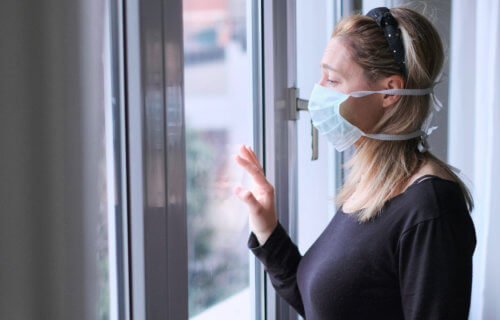BUENOS AIRES, Argentina — The health impacts of social isolation have been a double-edged sword for nations trying to curb the spread of COVID-19. Aside from the mental health concerns quarantine can bring, researchers in Argentina say lockdowns are also causing a spike in high blood pressure cases.
The study, conducted in the emergency department of Favaloro Foundation University Hospital, finds a large chunk of patients admitted to the facility are dealing with hypertension during the pandemic. Researchers examined 12,241 patients with an average age of 57. The study specifically looked at adults entering the hospital between March 25 and June 25; comparing those patients to others visiting the emergency room during the first three months of 2020 and between March 21 and June 27 of 2019.
“Admission to the emergency department during the mandatory social isolation period was linked with a 37% increase in the odds of having high blood pressure – even after taking into account age, gender, month, day and time of consultation, and whether or not the patient arrived by ambulance,” says study author Dr. Matías Fosco in a media release.
How social isolation can lead to high blood pressure
Common reasons patients visited the E.R. included chest pain, shortness of breath, cough, hypertension, fever, dizziness, and abdominal pain. In midst of the social isolation period, doctors diagnosed 391 patients (23.8%) admitted to the emergency room with high blood pressure. The percentage is noticeably higher than the same time frame from 2019 (17.5%) and the period right before lockdown (15.4%).
“There are several possible reasons for the connection between social isolation and high blood pressure,” Dr. Fosco adds. “For example, increased stress because of the pandemic, with limited personal contact and the onset or exacerbation of financial or family difficulties. Changed behaviors may have played a role, with higher intake of food and alcohol, sedentary lifestyles and weight gain.”
Argentina’s mandatory lockdown went into effect on March 20, 2020. Outside of essential employees, local officials ordered the public to remain home and only leave the house for food, medicine, and cleaning supplies. Fosco suspects blood pressure levels are likely increasing during lockdown due to fears over contracting COVID while going out to do essential shopping.
“Patients may have felt more psychological tension during transportation to the hospital because of travel restrictions and police controls and a fear of becoming infected with coronavirus after leaving home. In addition, patients being treated for high blood pressure may have stopped taking their medicine due to preliminary warnings about possible adverse effects on COVID-19 outcomes (which were later dismissed),” Fosco says.
Keep healthy, carry on
The lead author adds controlling blood pressure helps to prevent heart attacks and stroke, along with lowering the chances of severe COVID-19 infections. Maintaining a healthy lifestyle, even during quarantine, may be the key to avoiding hypertension.
“Many regulations related to the pandemic have now relaxed and we are investigating if this is reflected in the blood pressure of patients admitted to emergency,” the doctor concludes.
The finding were presented at the 46th Argentine Congress of Cardiology (SAC).
